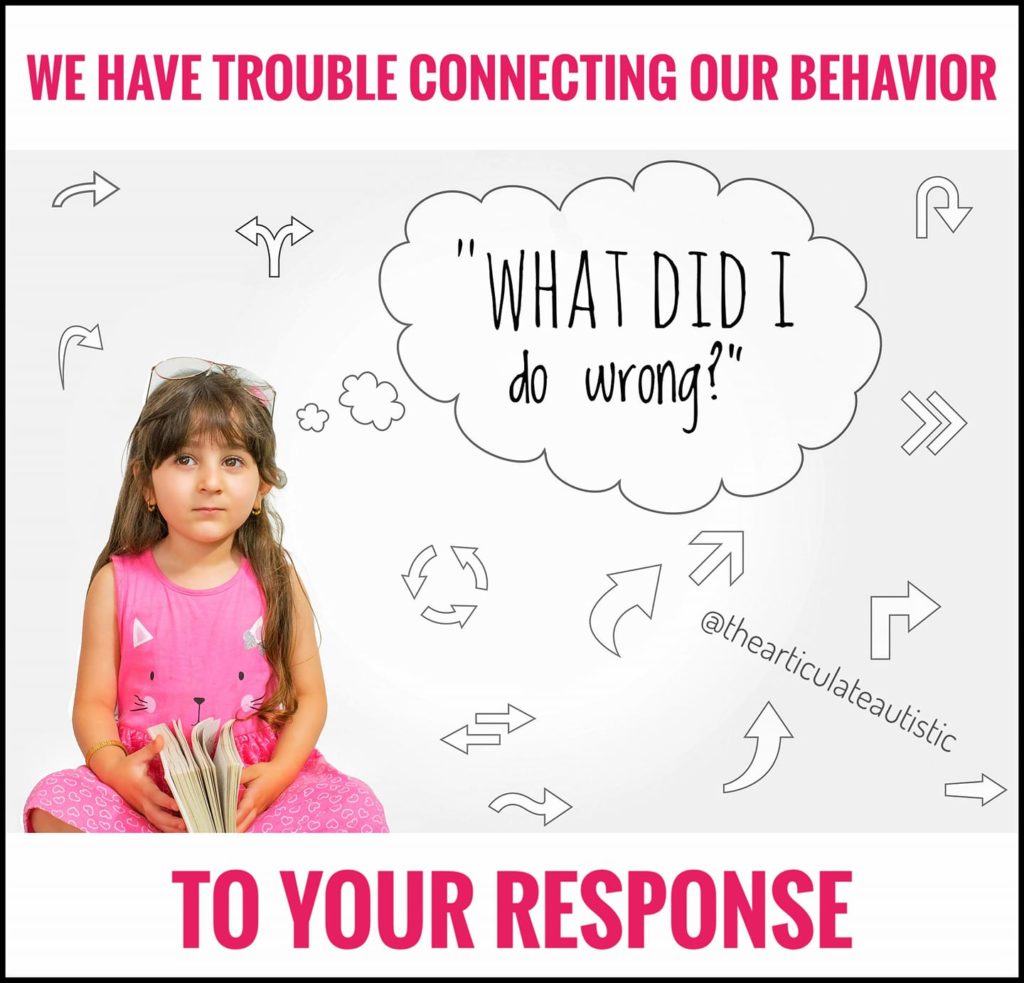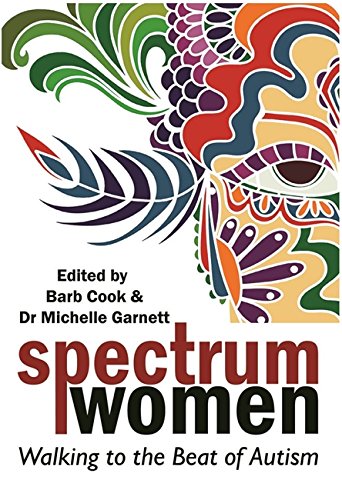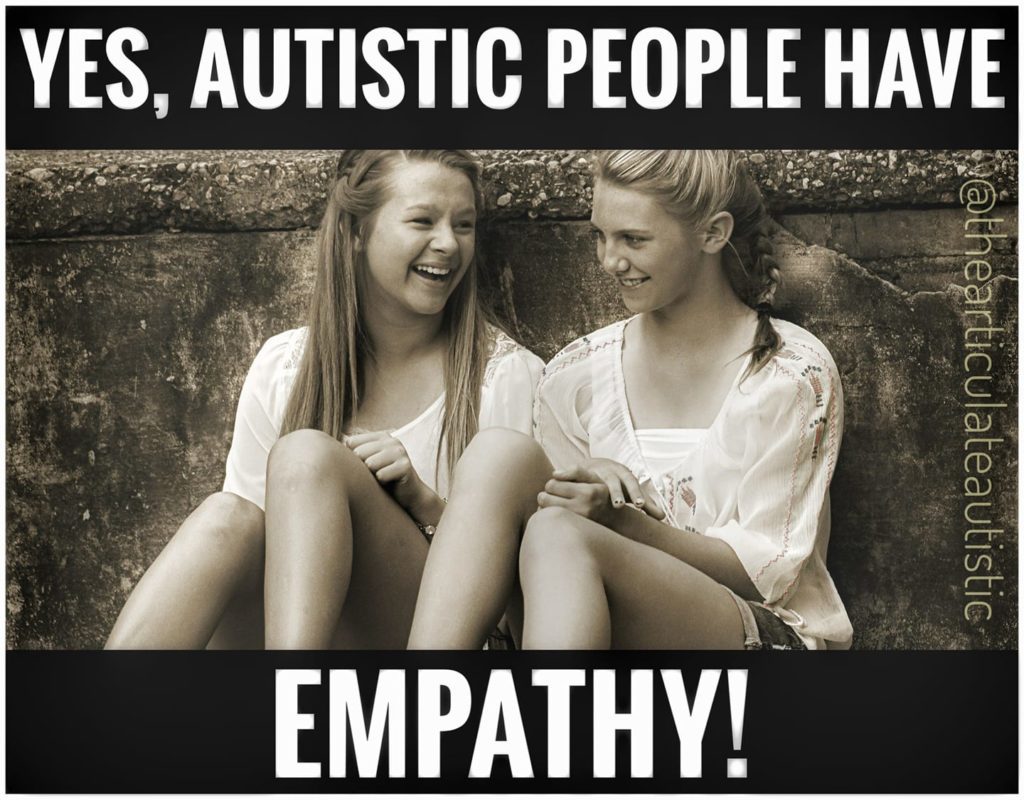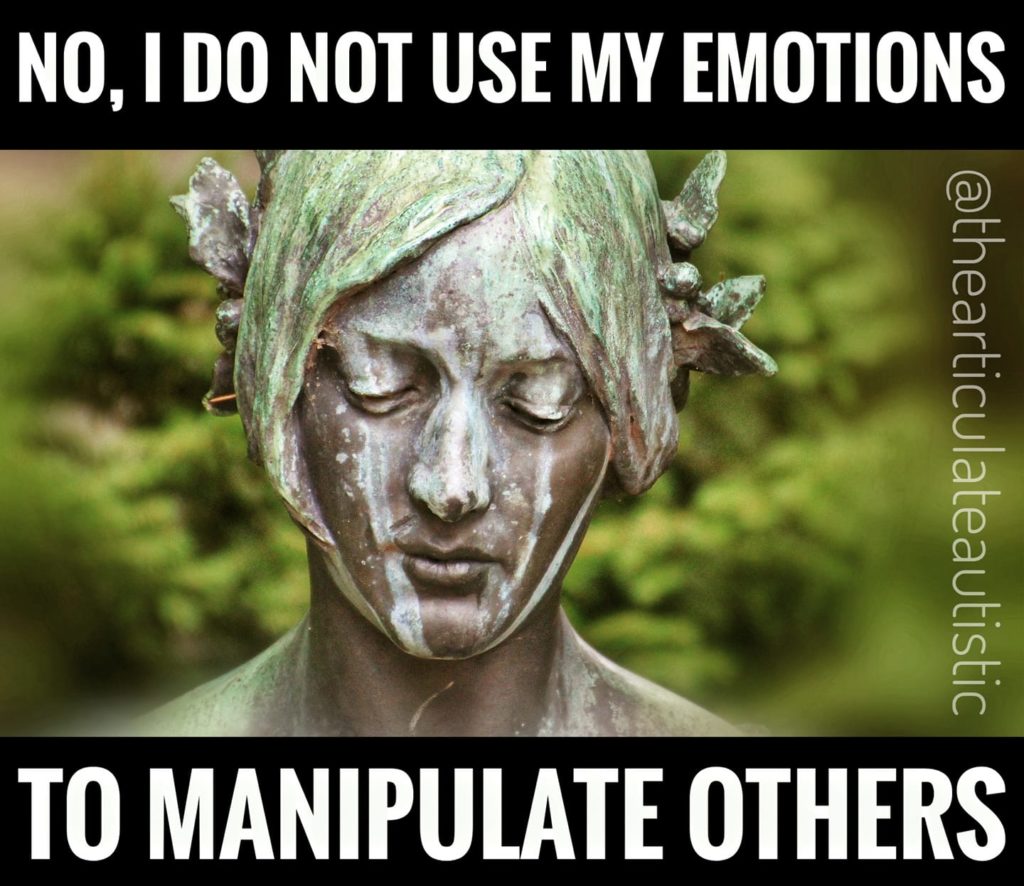We Honestly Think You’re Messing With Our Heads

Lately, I’ve been thinking about some of the neurotypical responses to my threads, and there is a specific pattern of misunderstanding that appears to be occurring that I wanted to address.
I’m going to just reference myself for this because I think this is case-by-case based on age and upbringing, and it’s possible older autists will identify with this more.
When I was a child, teen, and young adult, I thought everybody was messing with my head and literally just making stuff up to upset me and get me to have meltdowns.
If someone got in my face, yelled at me, or even just suddenly reacted to something I unknowingly did or said, I didn’t believe that what they were saying about my behavior was true because that was not my experience at all.
– Jaime A. Heidel
I thought nearly everyone I encountered just randomly blew up at me at different intervals for unknown reasons.
I went through years of therapy, YEARS, talking about how people at work, in my family, my acquaintances, etc. would just suddenly “attack me with no provocation”.
My therapist (who I don’t mind saying now was absolutely freaking clueless) just listened and talked half-jokingly talked about fitting me up with a camera just to see what people were reacting to about me, which I was 100% on board with, but it never happened.
I must have been about 24 years old when a former boss of mine took the time to be very gentle in explaining how I’d offended someone over the use of the copy machine, and something clicked in my head, and I told this sweet man that this always happened to me, that people would just get mad suddenly, and I had no clue why.
(Article continues below.)
The best way to improve communication with your autistic loved one is to understand how your autistic loved one’s mind works! Intentions, motivations, and personal expressions (facial expressions or lack thereof, body language, etc.), are often quite different in autistic people than they are in neurotypical people.
Experience a better understanding of your autistic loved one by reading books about life from an autistic perspective as well as stories that feature autistic characters. You’ll have so many “Ah ha!” moments and start seeing your autistic loved one in a different light (and you’ll have a better understanding of their behaviors, which you may have been misinterpreting up until now).
Books I recommend for a better understanding of your autistic loved one:
I think it was my very first inclination that there was actually something about ME that could be causing these reactions from others. I didn’t understand it, and I didn’t know what to do about it, and, if I ever asked, I would get the dreaded “You know what you did” look, so there certainly was no learning that way.
So, my point is, if the autistic person in your life appears obstinate about understanding your feelings, this could be why.
It’s not that we don’t have feelings or empathy or anything like that, it’s that we do not experience social encounters the way you do AT ALL.
We’re not on the same page, the same book, or even the same planet when it comes to this.
I really can’t stress this enough.
On the outside, looking in, with no other experience than that of our own minds and bodies, we cannot conceptualize that, for example, saying something in a blunt way would be considered rude or sighing would be mistaken as irritation, or crying would be seen as possible emotional blackmail, or that covering our ears would mean we are mocking your taste in music, or pushing food aside would be indicating that we hate your cooking and, therefore, by extension, you.
We do not work that way. So, from our point of view, until we learn differently from years of therapy and reading and struggling and researching, we think (largely) that you have to be making it up or gaslighting us on purpose.
It takes a long time for many of us to know who we can trust to tell us the truth of their feelings and perceptions and who is just being abusive.
In fact, many of us choose to be alone because we absolutely cannot identify safe people from abusers, and since, on the surface, it seems like the WORLD is abusing us, it can be nearly impossible to sort it out. I still can’t do it, and I don’t think I ever will.
NTs, imagine living your entire life thinking people randomly explode like bombs, and you have no way of knowing what will set them off. It’s like having a permanent “kick me” sign tattooed on your body. We keep getting kicked, and everybody thinks we know the tattoo is there, but we don’t, and nobody thinks to tell us.
Can you, for one moment, imagine the horror of that type of existence?
If the ND person in your life appears to not admit when they are wrong, won’t apologize, and won’t take you seriously, show them this post, and ask them if it resonates with them. You may be very surprised at the response.
(Bring tissues.)
Follow me on Instagram.
Want downloadable, PDF-format copies of these blog posts to print and use with your loved ones or small class? Click here to become a Patreon supporter!











2 Responses
[…] OK, so the third example is a bit funny from the outside looking in, but not in the moment for either neurotype. It’s not fun. It’s scary and confusing and causes us both to mistrust each other. […]
[…] However, with an NT person and an autistic person, these differences can be so vast, that if a confrontation about said event occurs, the NT might think they being blatantly lied to while the autistic will think they are being gaslit. […]